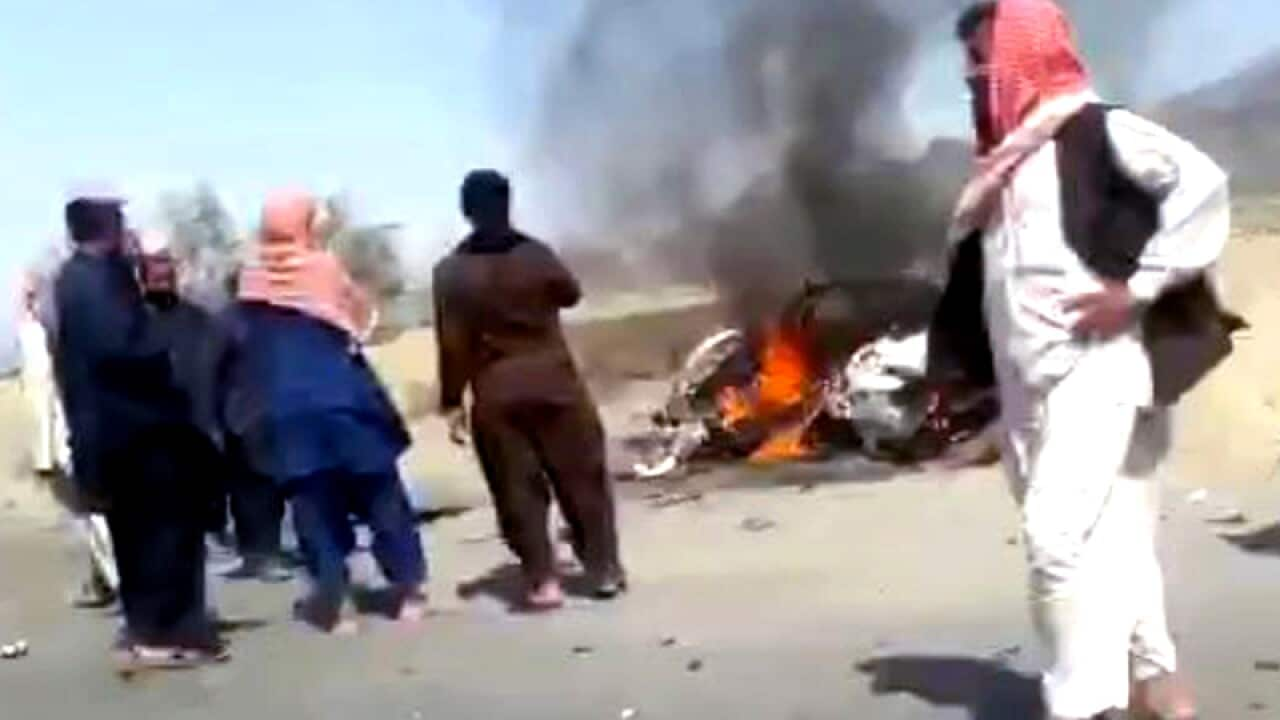US forces killed Taliban leader Mullah Akhtar Mansour in an air strike last week because he was engaged in plotting that posed "specific, imminent threats" to US and coalition personnel in Afghanistan, the Pentagon says.
Navy Captain Jeff Davis, a Pentagon spokesman, said on Monday the attack against Mansour inside Pakistan on Saturday was a defensive strike aimed at disrupting the Taliban plotting.
Mansour was engaged in "specific actions, specific things ... in real time", Davis said.
US President Barack Obama, on a three-day visit to Vietnam, reiterated support for the Western-backed government in Kabul and Afghan security forces, and called on the Taliban to join stalled peace talks.
Calling the death "an important milestone", Obama said Mansour had rejected peace talks and had "continued to plot against and unleash attacks on American and Coalition forces".
The US currently has 9800 troops in Afghanistan, divided between a NATO-led mission to train and advise local forces and a separate counterterrorism mission fighting militant groups such as Islamic State and al-Qaeda.
The president authorised the drone strike that killed Mansour in a remote region just on the Pakistani side of the border with Afghanistan on Saturday.
Pakistani authorities have said the drone strike was a violation of the country's sovereignty but otherwise, reaction from Islamabad has been relatively muted and a number of questions remain over what exactly happened.
An undamaged Pakistani passport in the name of Wali Muhammad, which Pakistani authorities said contained a visa for Iran, was recovered next to the burned-out car at the scene of the attack and is believed to have belonged to Mansour.
A spokesman for the Iranian foreign ministry was quoted on state media denying that such an individual had crossed the border from Iran to Pakistan at the time in question.
Meanwhile, senior Afghan Taliban figures met on Monday to agree on a successor to Mansour, but are yet to make an official statement on the fate of Mansour, who assumed the leadership only last year.
Senior members confirmed that their main shura, or leadership council, has been meeting to discuss the succession in a bid to prevent factional splits from fragmenting the movement.
Serious divisions emerged last year when it was confirmed that Mullah Mohammad Omar, the group's founder, had been dead for two years, leaving his deputy Mansour in effective charge of the movement and open to accusations he deceived his commanders.

